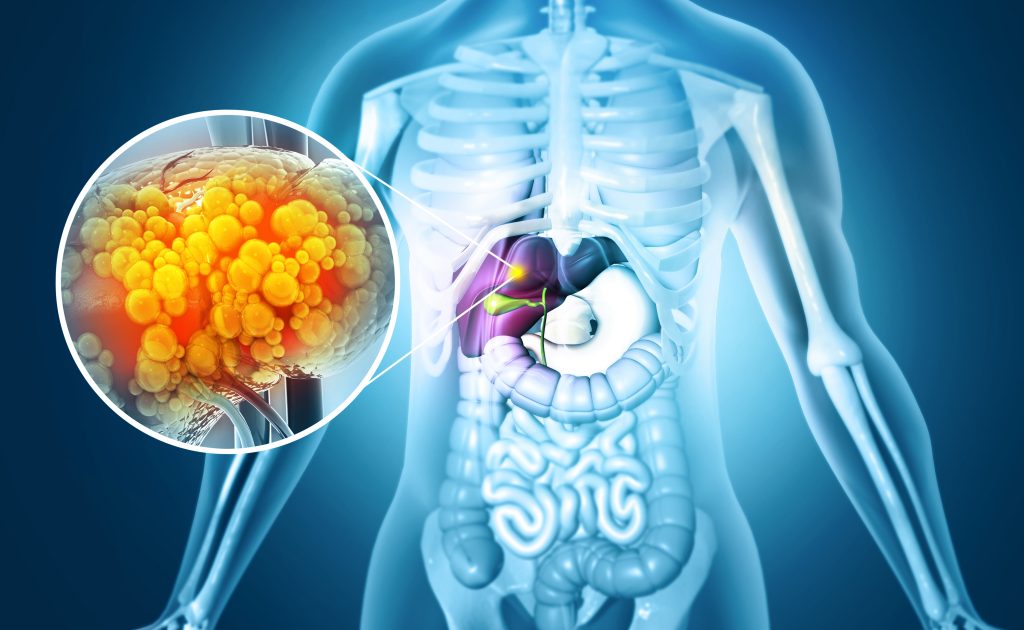
Understanding the Root Causes of Fatty Liver Through Functional Medicine

Understanding the Root Causes of Fatty Liver Through Functional Medicine
Fatty liver disease has become one of the most common health concerns worldwide. Often linked to poor lifestyle choices, obesity, or excessive alcohol intake, it is a condition where fat builds up in the liver, interfering with its ability to function optimally. While conventional medicine tends to focus on symptom management and general lifestyle advice, functional medicine takes a deeper approach. It aims to uncover the root causes of fatty liver, understanding that every individual’s journey with this condition is unique.
At its core, functional medicine looks beyond “what” the problem is and asks “why” it developed in the first place. By identifying underlying triggers such as poor diet, insulin resistance, gut imbalances, or toxin exposure, functional medicine provides patients with personalized and sustainable healing strategies.
What is Fatty Liver Disease?

Fatty liver disease occurs when fat makes up more than 5–10% of the liver’s weight. There are two main types:
Alcoholic Fatty Liver Disease (AFLD) – Caused by excessive alcohol consumption.
Non-Alcoholic Fatty Liver Disease (NAFLD) – Occurs in people who drink little or no alcohol, and is strongly linked to metabolic issues such as obesity, type 2 diabetes, and high cholesterol.
If left unaddressed, fatty liver can progress into inflammation (steatohepatitis), fibrosis, cirrhosis, or even liver cancer. Since symptoms are often silent in the early stages, many individuals only discover the problem after routine checkups or blood tests.
The Functional Medicine Perspective
Functional medicine views fatty liver not as an isolated condition but as a sign that something deeper in the body’s systems has gone out of balance. Instead of prescribing a “one-size-fits-all” approach, practitioners use a root-cause framework, asking:
- Why is the liver accumulating fat?
- What systems are contributing to this imbalance?
- How do lifestyle, diet, environment, and genetics play a role?
This comprehensive lens helps address not just the liver but the whole body.
Root Causes of Fatty Liver from a Functional Medicine Lens

1. Poor Diet and Nutrient Imbalances
One of the biggest contributors to fatty liver is a diet high in processed foods, refined sugar, unhealthy fats, and low in nutrients. Excess sugar, especially fructose, overwhelms the liver and gets converted into fat. Meanwhile, lack of essential nutrients like choline, omega-3 fatty acids, and antioxidants weakens the liver’s ability to process fat.
Functional medicine solution: Rebuild nutrition with whole, nutrient-dense foods, emphasizing lean proteins, fiber-rich vegetables, healthy fats, and liver-supporting foods like leafy greens, cruciferous vegetables, and omega-3 sources.
2. Insulin Resistance and Blood Sugar Imbalance
When cells become resistant to insulin, the pancreas produces more of it to regulate blood sugar. Elevated insulin levels signal the liver to convert excess glucose into fat, leading to fatty deposits. This explains why fatty liver is so closely tied to type 2 diabetes and metabolic syndrome.
Functional medicine solution: Personalized diet plans that balance blood sugar, such as low-glycemic meals, intermittent fasting (when appropriate), and targeted supplements like chromium or berberine to improve insulin sensitivity.
3. Obesity and Visceral Fat
Excess body fat, especially around the abdomen, increases the flow of fatty acids into the liver, worsening fat accumulation. However, not everyone with a fatty liver is overweight, which means deeper factors are often involved.
Functional medicine solution: Sustainable weight management strategies that include movement, mindful eating, and restoring metabolic flexibility rather than quick fixes or extreme diets.
4. Gut Health Imbalances (The Gut-Liver Axis)
The liver and gut are closely connected through the portal vein, which carries nutrients, toxins, and bacterial byproducts from the intestines to the liver. When gut bacteria are imbalanced (dysbiosis) or when intestinal permeability increases (“leaky gut”), the liver is bombarded with inflammatory compounds that contribute to fatty liver progression.
Functional medicine solution: Gut-healing protocols involving probiotics, prebiotics, and an anti-inflammatory diet to restore microbiome balance. Tests for food sensitivities and stool analysis may also guide targeted treatment.
5. Toxin Overload
The liver is the body’s main detoxification organ. Continuous exposure to environmental toxins, pesticides, plastics, alcohol, and even certain medications burdens the liver, slowing its fat metabolism and leading to fat storage.
Functional medicine solution: Reducing toxin exposure in daily life, supporting natural detoxification pathways with antioxidants like glutathione, and focusing on hydration, sweating, and fiber intake to eliminate toxins efficiently.
6. Chronic Inflammation
Low-grade systemic inflammation is another driver of fatty liver. Inflammation not only damages liver cells but also worsens insulin resistance and oxidative stress, creating a vicious cycle.
Functional medicine solution: Identifying and addressing inflammatory triggers such as processed foods, stress, hidden infections, or allergies. Anti-inflammatory nutrition with turmeric, green tea, omega-3 fatty acids, and leafy greens helps reduce stress on the liver.
7. Genetics and Epigenetics
Some individuals may have a genetic predisposition to fatty liver, but genes alone do not determine destiny. Lifestyle and environmental factors influence whether these genes are “switched on” or “off.”
Functional medicine solution: Epigenetic testing may guide highly personalized interventions, ensuring patients can take proactive steps to prevent the progression of fatty liver even if they are genetically predisposed.
Functional Medicine Testing for Fatty Liver
Functional medicine practitioners often go beyond standard liver function tests. They may use:
- Advanced blood panels to check insulin resistance, nutrient levels, and inflammation markers.
- Stool analysis to evaluate gut microbiome health and digestive imbalances.
- Food sensitivity testing to identify dietary triggers.
- Toxin screenings to uncover hidden burdens on the liver.
- These tests allow practitioners to create targeted treatment plans instead of generic advice.
The Functional Medicine Healing Approach
Healing fatty liver with functional medicine involves a personalized, multi-layered strategy:
- Nutrition First
A tailored diet that reduces processed sugar and refined carbs, while emphasizing whole foods, lean proteins, fiber, and healthy fats. Specific nutrients like choline (found in eggs), milk thistle, and green tea extract are often recommended to support liver repair.
- Lifestyle Shifts
Exercise is a powerful tool for fatty liver. Functional medicine encourages regular movement that fits into an individual’s life, whether that means walking, strength training, or yoga. Stress reduction through mindfulness or meditation also plays a key role.
- Gut Restoration
Restoring gut health with probiotics, prebiotics, and anti-inflammatory foods helps reduce the toxic load on the liver and improves nutrient absorption.
- Detox Support
Supporting the liver’s detox pathways through hydration, antioxidants, and lifestyle habits such as sauna therapy or dry brushing enhances liver resilience.
- Individualized Supplementation
Based on lab results, supplements such as omega-3 fatty acids, vitamin E, NAC (N-acetylcysteine), and herbal extracts may be introduced to reduce inflammation and promote healing.
Why Functional Medicine Works for Fatty Liver

Unlike conventional approaches that may only suggest weight loss or medications for related conditions, functional medicine treats fatty liver as a system-wide imbalance. By uncovering root causes, it helps not just the liver but the entire body function better. This holistic model empowers patients to take control of their health, creating long-term sustainable results rather than short-term fixes.
Final Thoughts
Fatty liver disease is a growing global health challenge, but it is also highly reversible when approached correctly. Functional medicine provides a roadmap to healing by identifying the underlying reasons behind fat accumulation in the liver, whether it’s diet, insulin resistance, gut imbalance, or toxins.
By addressing these root causes, functional medicine does more than just improve liver function. It restores overall health, reduces the risk of chronic diseases, and helps individuals reclaim energy and vitality.
At its heart, functional medicine recognizes that no two people are alike. With a personalized approach, it offers hope and healing for anyone seeking to overcome fatty liver and move toward a healthier future.
